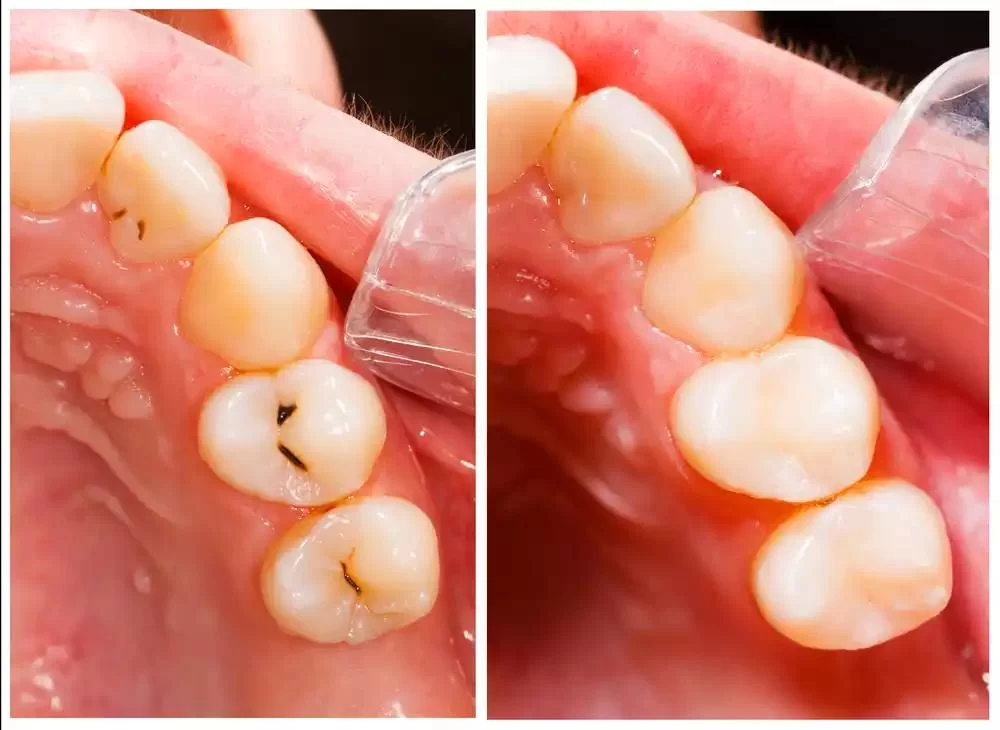
- Understanding Tooth Sensitivity After a Filling
- Common Causes of Tooth Sensitivity
- Effective Treatment Options for Tooth Sensitivity
- Preventing Tooth Sensitivity in the Future
- When to Seek Professional Help
Understanding Tooth Sensitivity After a Filling
After receiving a dental filling, it’s not uncommon to experience tooth sensitivity. This discomfort can range from mild to severe and may be triggered by hot, cold, or sweet foods and drinks. Understanding the reasons behind this sensitivity can help alleviate the symptoms and ensure a smooth recovery.
Tooth sensitivity after a filling is typically temporary and is a result of the nerve endings in the tooth reacting to changes in temperature or pressure. The filling material, whether it’s composite resin, amalgam, or gold, can affect the level of sensitivity. In many cases, this sensitivity will fade over time as the tooth heals and adapts to the new filling.
Common Causes of Tooth Sensitivity
To better understand how to deal with tooth sensitivity after a filling, it’s important to consider the various causes of this discomfort. Here are some of the most common reasons:
1. Sensitivity to Filling Material
Some people experience heightened sensitivity due to the material used in the filling. For instance, metal fillings can sometimes cause temperature sensitivity, whereas resin fillings tend to be more comfortable once they settle. If you’re concerned about the filling material, discussing your options with your dentist can help you choose the right one for your needs.
2. Tooth Structure Alteration
During the filling procedure, the dentist removes decayed parts of the tooth, which may expose the tooth’s nerve endings. This exposure can temporarily increase sensitivity as the tooth adjusts to the filling.
3. Dental Work and Pressure
If a filling was placed near a nerve, or if the tooth was deeply drilled, the tooth may be more sensitive for a longer period as it recovers from the pressure and changes to its structure.
Effective Treatment Options for Tooth Sensitivity
Fortunately, there are several effective ways to manage and reduce tooth sensitivity after a filling. The following tips can help minimize discomfort:
1. Use Toothpaste for Sensitive Teeth
Specially formulated toothpaste for sensitive teeth can help relieve discomfort by blocking nerve transmission. These products usually contain potassium nitrate or strontium chloride, which help to calm the nerve endings in your teeth.
2. Avoid Trigger Foods
Until the sensitivity subsides, avoid consuming extremely hot, cold, or sugary foods and drinks, as these can trigger pain. Instead, opt for room-temperature foods and beverages to reduce irritation.
3. Apply a Cold Compress
If you experience swelling or intense discomfort, applying a cold compress to the affected side of your face can help numb the area and provide temporary relief from pain.
4. Over-the-Counter Pain Relief
Non-prescription pain relief medications such as ibuprofen or acetaminophen can help manage any discomfort. Always follow the recommended dosage instructions and consult your dentist if the pain persists.
Preventing Tooth Sensitivity in the Future
While tooth sensitivity after a filling is common, there are several steps you can take to prevent it from happening again in the future:
1. Practice Good Oral Hygiene
Maintaining a consistent oral hygiene routine can help protect your fillings and overall dental health. Brush your teeth twice a day with fluoride toothpaste and floss regularly to prevent plaque buildup and cavities.
2. Regular Dental Checkups
Visit your dentist regularly for checkups and cleanings. Your dentist can catch any potential issues early on and make adjustments to your fillings if necessary.
3. Avoid Teeth Grinding
If you grind your teeth at night, this can put extra pressure on your fillings and increase sensitivity. Wearing a nightguard can protect your teeth from the damage caused by grinding.
When to Seek Professional Help
In most cases, tooth sensitivity after a filling will subside on its own within a few weeks. However, there are instances where you may need to seek professional help:
1. Persistent or Severe Pain
If the pain persists for an extended period or is severe, it could indicate that the filling is too high, the tooth is cracked, or there is an underlying issue such as an infection. Your dentist can assess the situation and provide appropriate treatment.
2. Discomfort During Normal Activities
If normal activities like chewing or biting cause pain, it’s essential to schedule a follow-up appointment with your dentist. They may need to adjust the filling or address any complications.
At Dentistry Toothtruth, we understand how frustrating tooth sensitivity can be after a filling. If you're looking for the most suitable products or services to address your concerns, our platform offers expert recommendations to guide you towards effective solutions for better dental health.







 Avondale Dental: Hummitzsch, Michael DDS0.0 (0 review)
Avondale Dental: Hummitzsch, Michael DDS0.0 (0 review) Florence Family Dental Center: Michel, Carlos R DDS4.0 (13 review)
Florence Family Dental Center: Michel, Carlos R DDS4.0 (13 review) Lane & Associates Family Dentistry - Raleigh Wake Forest Road4.0 (1405 review)
Lane & Associates Family Dentistry - Raleigh Wake Forest Road4.0 (1405 review) Irina Moga, DDS4.0 (199 review)
Irina Moga, DDS4.0 (199 review) Amazing Smiles Family Dentistry4.0 (412 review)
Amazing Smiles Family Dentistry4.0 (412 review) Dental Wellness of Portland4.0 (28 review)
Dental Wellness of Portland4.0 (28 review) The Importance of Oral Health Education During Pregnancy for a Healthy Pregnancy
The Importance of Oral Health Education During Pregnancy for a Healthy Pregnancy Best Tips for Brushing Your Teeth Properly for Healthy Gums: Essential Techniques for Oral Health
Best Tips for Brushing Your Teeth Properly for Healthy Gums: Essential Techniques for Oral Health Why Skipping Dental Checkups Can Lead to Bigger Oral Health Problems
Why Skipping Dental Checkups Can Lead to Bigger Oral Health Problems Advantages of Porcelain Dental Restorations
Advantages of Porcelain Dental Restorations How Can Diabetes Cause Tooth and Gum Problems? Preventing and Managing Oral Health Issues
How Can Diabetes Cause Tooth and Gum Problems? Preventing and Managing Oral Health Issues Healthy Habits for Promoting Good Oral Health and Hygiene: Tips for a Healthy Smile
Healthy Habits for Promoting Good Oral Health and Hygiene: Tips for a Healthy Smile